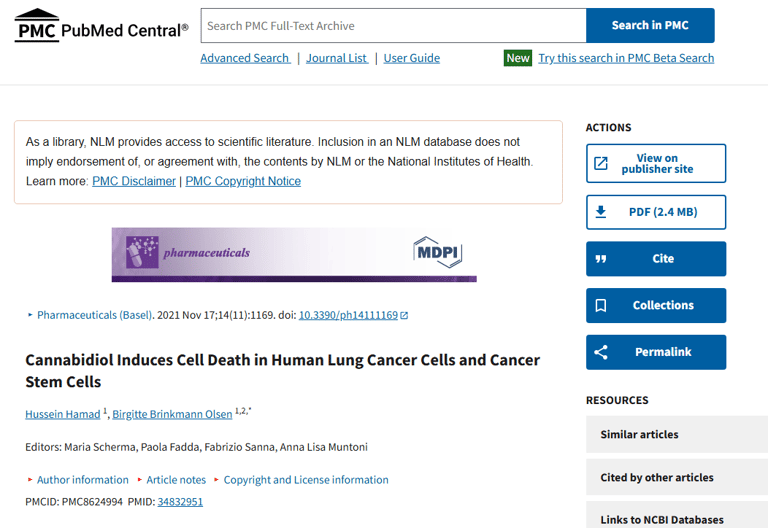

Can Cannabidiol Cure Lung Cancer?
Lung cancer patient who had declined conventional cancer treatment: could the self-administration of ‘CBD oil’ be contributing to the observed tumour regression?
Correspondence to Dr Kah Ling Liew; kahling.liew1@nhs.net
Abstract
Conventional lung cancer treatments include surgery, chemotherapy and radiotherapy; however, these treatments are often poorly tolerated by patients.
Cannabinoids have been studied for use as a primary cancer treatment.
Cannabinoids, which are chemically similar to our own body’s endocannabinoids, can interact with signalling pathways to control the fate of cells, including cancer cells.
We present a patient who declined conventional lung cancer treatment.
Without the knowledge of her clinicians, she chose to self-administer ‘cannabidiol (CBD) oil’ orally 2–3 times daily.
Serial imaging shows that her cancer reduced in size progressively from 41 mm to 10 mm over a period of 2.5 years.
Previous studies have failed to agree on the usefulness of cannabinoids as a cancer treatment.
This case appears to demonstrate a possible benefit of ‘CBD oil’ intake that may have resulted in the observed tumour regression.
The use of cannabinoids as a potential cancer treatment justifies further research.
Currently, there is no effective therapy against lung cancer due to the development of resistance.
Resistance contributes to disease progression, recurrence, and mortality.
The presence of so-called cancer stem cells could explain the ineffectiveness of conventional treatment, and the development of successful cancer treatment depends on the targeting also of cancer stem cells.
Cannabidiol (CBD) is a cannabinoid with anti-tumor properties.
However, the effects on cancer stem cells are not well understood.
The effects of CBD were evaluated in spheres enriched in lung cancer stem cells and adherent lung cancer cells.
We found that CBD decreased viability and induced cell death in both cell populations.
Furthermore, we found that CBD activated the effector caspases 3/7, increased the expression of pro-apoptotic proteins, increased the levels of reactive oxygen species, as well as a leading to a loss of mitochondrial membrane potential in both populations.
We also found that CBD decreased self-renewal, a hallmark of cancer stem cells.
Overall, our results suggest that CBD is effective against the otherwise treatment-resistant cancer stem cells and joins a growing list of compounds effective against cancer stem cells.
The effects and mechanisms of CBD in cancer stem cells should be further explored to find their Achilles heel.

